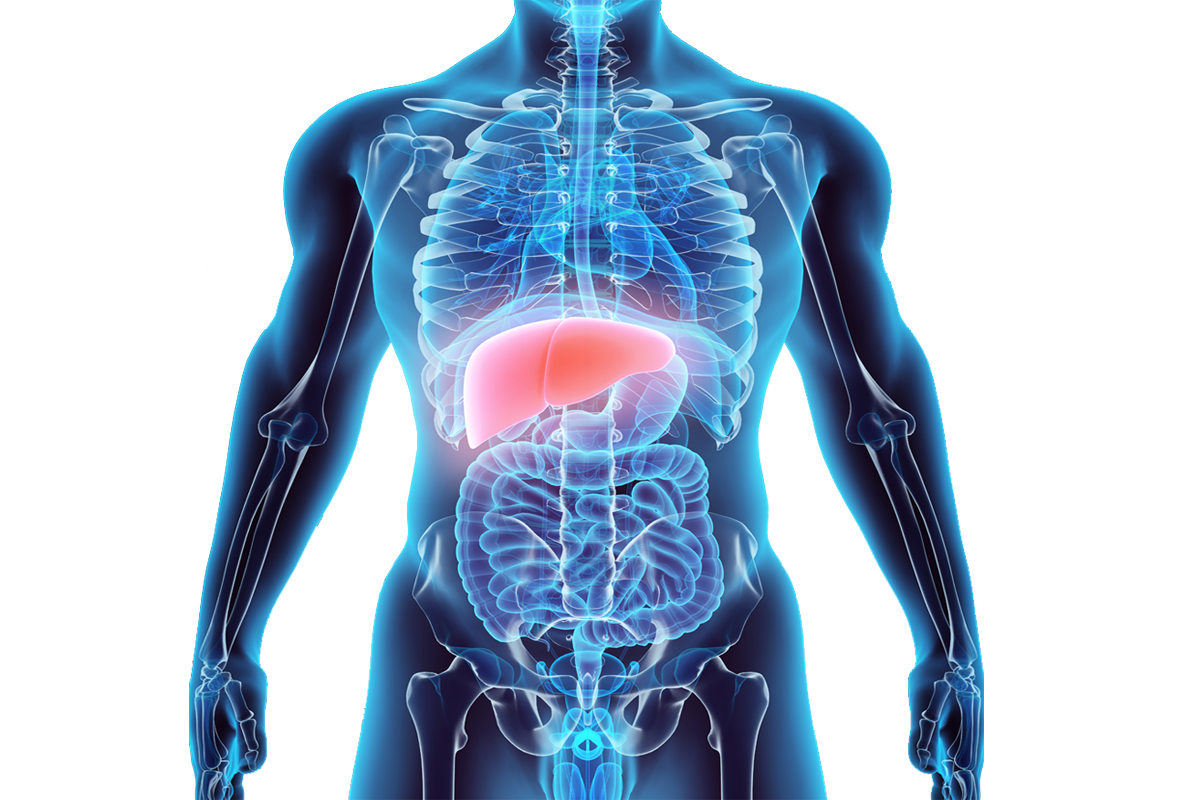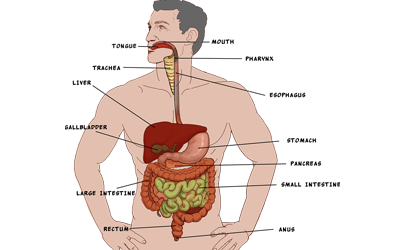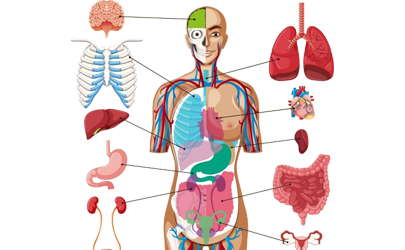
Natural Liver Detoxification: Science-Backed Approaches
The liver is your body's primary filtration system, processing everything you eat, drink, and absorb through your skin. Contrary to popular belief, the liver doesn't require extreme "cleanses" but benefits tremendously from supportive lifestyle choices.
Natural Liver Detoxification: Supporting Your Body's Built-In Cleanser
The term "detox" is often misused. Your liver doesn't need a magical juice cleanse; it is a natural, highly efficient detoxification machine 24/7. The goal isn't to "cleanse" it but to support its innate processes with the right tools.
How to Naturally Support Liver Detoxification:
The process occurs in two main phases:
- Phase I (Activation): Enzymes (like cytochrome P450) break down toxins into intermediate forms, often creating free radicals.
- Phase II (Conjugation): These intermediates are bound to other molecules, making them water-soluble and harmless so they can be excreted.
- Cruciferous Vegetables: Broccoli, cauliflower, Brussels sprouts, and kale contain glucosinolates. These compounds support the production of crucial Phase II enzymes, enhancing the liver's ability to neutralize toxins.
- Adequate Protein: The amino acids from protein (especially cysteine, glycine, and glutamine) are essential building blocks for the Phase II conjugation pathways.
- Stay Hydrated: Water is essential for flushing out water-soluble toxins through urine and bile.
- Limit Alcohol and Processed Foods: Reducing the intake of substances that create a significant toxic load allows the liver to focus on its other metabolic duties.
- Coffee: Numerous studies have shown that coffee consumption is linked to a lower risk of liver diseases, including cirrhosis and liver cancer. It appears to reduce inflammation and slow the progression of scar tissue.
Science-Backed Strategies:
The Liver-Immune System Connection: How to Boost Your Defenses
Your liver is a key player in your immune system. It acts as a filter, capturing and destroying pathogens that enter the bloodstream from the gut. It also produces most of the body's infection-fighting proteins.
How to Boost Your Immune System by Supporting Your Liver:
- ✔ Fiber-Rich Foods: Fiber feeds beneficial gut bacteria. A healthy gut microbiome means fewer toxins and pathogens passing through the gut wall to the liver, reducing its immune workload.
- ✔ Green Tea: Rich in the antioxidant epigallocatechin-3-gallate (EGCG), green tea has been shown to modulate immune function and protect liver cells from damage.
- ✔ Turmeric (Curcumin): A powerful anti-inflammatory compound that helps calm inflammation in the liver and throughout the body, supporting a balanced immune response.
- ✔ Sleep and Stress Management: Chronic stress and poor sleep elevate cortisol, which can impair immune function and promote inflammation, indirectly burdening the liver.
What is Metabolism? The Liver as Your Metabolic Command Center
Metabolism is the sum of all chemical processes that occur within a living organism to maintain life. It's not just about "burning calories"; it's about energy creation and utilization.
- Carbohydrate Metabolism: It stores glucose as glycogen and releases it when your body needs energy, maintaining stable blood sugar levels.
- Fat Metabolism: The liver breaks down fats to produce energy and creates cholesterol and triglycerides essential for building cells and hormones.
- Protein Metabolism: It processes amino acids from protein, synthesizes new proteins, and converts waste ammonia (a byproduct of protein breakdown) into urea to be safely excreted.
Your liver is the central hub for metabolism, governing three key areas:
A healthy liver ensures this complex metabolic orchestra plays in harmony.
What is Nano Medicine? The Future of Liver Treatment
Nanomedicine involves using materials at the nanoscale (1-100 nanometers) for diagnosing, preventing, and treating disease. For the liver, this represents a revolutionary approach.
- Targeted Drug Delivery: Nanoparticles can be engineered to deliver drugs (e.g., chemotherapy, antifibrotics) directly to liver cells or even specific types of cells (e.g., stellate cells that cause scarring). This maximizes the drug's effect on the disease while minimizing side effects on the rest of the body.
- Improved Imaging: Nano-scale contrast agents can help detect liver tumors and fibrosis at a much earlier stage than conventional imaging allows.
- Gene Therapy: Nanoparticles can act as vehicles to deliver functional genes to replace or silence faulty ones, offering potential cures for genetic liver disorders.
Applications in Liver Health:
While still largely in the research and clinical trial phase, nanomedicine holds immense promise for treating complex liver diseases like cancer and cirrhosis with unprecedented precision.
Best Supplements for a Healthy Liver (Evidence-Based)
Always consult a healthcare professional before starting any new supplement regimen.
- Milk Thistle (Silymarin): The most well-known liver supplement. Silymarin is a powerful antioxidant that protects liver cells from toxin damage, reduces inflammation, and may even help regenerate new liver cells. Strong evidence supports its use for alcoholic liver disease and toxin-induced liver damage.
- N-Acetylcysteine (NAC): A precursor to glutathione, the body's master antioxidant. NAC is critically important for Phase II detoxification. It's actually the standard hospital treatment for acetaminophen (Tylenol) overdose-induced liver failure.
- Alpha-Lipoic Acid (ALA): A potent antioxidant that helps neutralize free radicals generated during Phase I detoxification. It also helps recycle other antioxidants like vitamins C and E and glutathione.
- Turmeric/Curcumin: Its potent anti-inflammatory properties are key for combating the chronic inflammation seen in conditions like non-alcoholic fatty liver disease (NAFLD).
- Vitamin E: Specifically for non-alcoholic steatohepatitis (NASH), a more advanced form of NAFLD, Vitamin E (under medical supervision) has been shown to reduce inflammation and fat in the liver.
- Zinc: An essential mineral that acts as a cofactor for over 300 enzymes, including many involved in detoxification. Zinc deficiency is common in liver disease and can worsen outcomes.
Conclusion: A Holistic View of Liver Health
Supporting your liver isn't about quick fixes. It's about a sustainable lifestyle that reduces the toxic load and provides the nutrients necessary for its complex work. By nourishing your body with whole foods, managing stress, considering evidence-based supplements, and staying informed about scientific advances like nanomedicine, you empower your body's most versatile organ to keep you healthy for years to come.
Important Notice: The information provided in this blog is for educational purposes only and is not a substitute for professional medical advice, diagnosis, or treatment. Always consult your doctor or a qualified healthcare provider before trying any natural remedies, supplements, or dietary changes.
⚠️ Warning:
By continuing to read this article, you acknowledge that the author and publisher are not liable for any direct, indirect, or consequential effects resulting from the use of this information.
Disclosure: As an Amazon Associate, We earn from qualifying purchases at no extra cost to you. Product prices and availability are accurate as of the date/time indicated and are subject to change.
Lactic Acid
HERE
LEAVE A REPLY
Your email address will not be published. Required fields are marked *
Fast Delivery
Across West & East India
safe payment
100% Secure Payment
Online Discount
Add Multi-buy Discount
Help Center
Dedicated 24/7 Support
Curated items
From Handpicked Sellers





LEAVE A COMMENTs
Tresa McDonald
“As someone with a family history of liver issues, I found this article incredibly valuable. The explanation of how the liver and immune system are connected was particularly enlightening. I've shared this with my family members so we can all work on supporting our liver health together.!”
Deborah Matthew
“The section on nano medicine was fascinating! I had no idea that technology had advanced so far in liver treatment. While some of it seems futuristic, it's exciting to know that researchers are working on these advanced solutions for liver diseases.”
Patricia John
“I appreciated the balanced approach in this article. So many health blogs promote extreme detoxes, but this emphasized sustainable lifestyle changes instead. The disclaimer about consulting a healthcare provider before taking supplements was also responsible - more health websites should include this.”